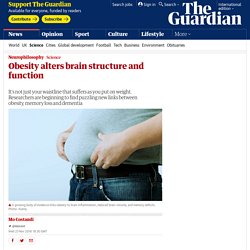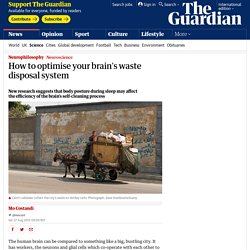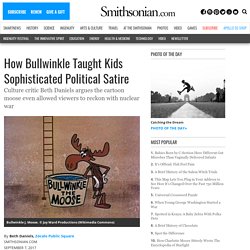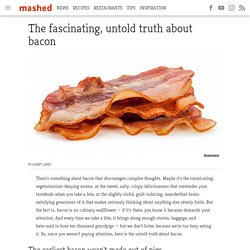

Myokines — New Element Training. Phytic Acid 101: Everything You Need to Know. What Magnetic Fields Do to Your Brain and Body - The Crux. (Credit: pippeeContributor/Shutterstock) There’s no escaping magnetic fields—they’re all around us.

For starters, the Earth itself is like a giant magnet. A spinning ball of liquid iron in our planet’s core generates the vast magnetic field that moves our compass needles around and directs the internal compasses of migrating birds, bats, and other animals. On top of that, ever-industrious humans have produced artificial magnetic fields with power lines, transport systems, electrical appliances, and medical equipment. La mémoire des bébés. Movement Relaxation Series. This is a very beautiful movement meditation kriya which will relax your whole body and mind.

It is important for every woman to deeply relax on a daily basis. Stress which builds up can cause physical and mental imbalances and this short yoga set is a beautiful way to release tension in the mind and body. Rhythmic, unforced, graceful, and free movement relaxes the entire body and releases the tensions we store in the body from our daily emotions. All emotional traumas leave their signature of tension in the body, which need to be released. Feeling the entire body confirms the reality of the relaxation and smoothes the aura. The most effective way of spacing your learning. We don’t deliberately practice our memories of events — not as a rule, anyway.

But we don’t need to — because just living our life is sufficient to bring about the practice. We remember happy, or unpleasant, events to ourselves, and we recount our memories to other people. Some will become familiar stories that we re-tell again and again. Obesity alters brain structure and function. Lucy Cheke and her colleagues at the University of Cambridge recently invited a few participants into her lab for a kind of ‘treasure hunt’.

The participants navigated a virtual environment on a computer screen, dropping off various objects along their way. They then answered a series of questions to test their memory of the task, such as where they had hidden a particular object. A Paravascular Pathway Facilitates CSF Flow Through the Brain Parenchyma and the Clearance of Interstitial Solutes, Including Amyloid β. How to optimise your brain's waste disposal system. The human brain can be compared to something like a big, bustling city.

It has workers, the neurons and glial cells which co-operate with each other to process information; it has offices, the clusters of cells that work together to achieve specific tasks; it has highways, the fibre bundles that transfer information across long distances; and it has centralised hubs, the densely interconnected nodes that integrate information from its distributed networks. Like any big city, the brain also produces large amounts of waste products, which have to be cleared away so that they do not clog up its delicate moving parts. Until very recently, though, we knew very little about how this happens. The brain’s waste disposal system has now been identified.
We now know that it operates while we sleep at night, just like the waste collectors in most big cities, and the latest research suggests that certain sleeping positions might make it more efficient. Lee, H. et al. (2015). Xu, L., et al. (2014). The Real Reason We Yawn - WSJ. Scientists discover why some thrive on less sleep than others. Researchers at the American Academy of Sleep Medicine conducted a study to find out why a small percentage of people appear to only need six hours of sleep whereas most everyone else needs between eight and nine hours for optimal functioning during the day.

They worked with 100 pairs of twins and identified a gene mutation that allows one not only to function on less sleep but also to experience fewer effects of sleep deprivation even after an all-nighter. The gene in question is called BHLHE41 and the variant is called p.Tyr362His for identification purposes, and individuals with the variant slept just five hours per night on average.
On the flipside, the twin without the mutation slept an hour and five minutes longer and struggled more in attempting to perform after 36 sleepless hours than his sibling with the variant. Cognitive performance was measured every two hours during the sleep deprivation period by means of the Psychomotor Vigilance Test. Neuroscience & Sleep: The Glymphatic System. How to Fall Asleep in 120 Seconds. How The Left Hand of Darkness Changed Everything. At a convention a few months ago, I found myself in the bar, talking to a young woman who wanted to expand her reading list.

She read a lot of fantasy, but had only dipped her toe into sci-fi. Where, she asked, should she start? “Have you read Ursula K. Le Guin?” I asked. How Bullwinkle Taught Kids Sophisticated Political Satire. “Mr.

The History of Bacon, From Ancient to Modern Times. Bacon may be America's current favorite pork product, inspiring countless 21st-century memes and t-shirt slogans, from "You had me at bacon" to "Keep calm and put bacon on.

" But the passion for cured pork stretches far back through history—and to many other parts of the world. Bacon in Ancient and Medieval Times Salted pork belly first appeared on dining tables thousands of years ago in China. Pork curing methods spread throughout the Roman Empire, and Anglo-Saxon peasants cooked with bacon fat. Until well into the 16th century, the Middle English term bacon or bacoun referred to all pork in general. The fascinating, untold truth about bacon. As a general rule, anything that tastes awesome probably isn't very good for you, and bacon is sadly no exception.

It's full of salt, fat, and nitrites which have been blamed for causing heart disease, among many other unpleasant ailments. Obviously, the threat of deadly consequences has never been enough to stop a true bacon aficionado, so good news for them: bacon can actually be good for you, albeit in moderation. Since it's largely meat, bacon contains lots of protein, which helps you feel full and keeps hunger at bay. A quantum experiment suggests there’s no such thing as objective reality. Back in 1961, the Nobel Prize–winning physicist Eugene Wigner outlined a thought experiment that demonstrated one of the lesser-known paradoxes of quantum mechanics.
The experiment shows how the strange nature of the universe allows two observers—say, Wigner and Wigner’s friend—to experience different realities. Since then, physicists have used the “Wigner’s Friend” thought experiment to explore the nature of measurement and to argue over whether objective facts can exist. That’s important because scientists carry out experiments to establish objective facts. Life without language. Thought without symbols — life without language — it’s a cognitive reality that is virtually impossible for most modern humans to fathom. People who think their opinions are superior to others are most prone to overestimating their relevant knowledge and ignoring chances to learn more. The Erasure of Islam from the Poetry of Rumi. How to Easily Manage Your Online Subscriptions & Save Money. Clean Up Your Digital Footprint. A Simple Trick for Success with One-Pagers.
New Earth Physiology – Activating the Vagus Nerve. Four Ways Google Calendars Can Help Teacher-Librarians Plan. THE CYCLES OF CHAOS: DECONSTRUCTING INITIATION. Quality Homework: A Smart Idea.